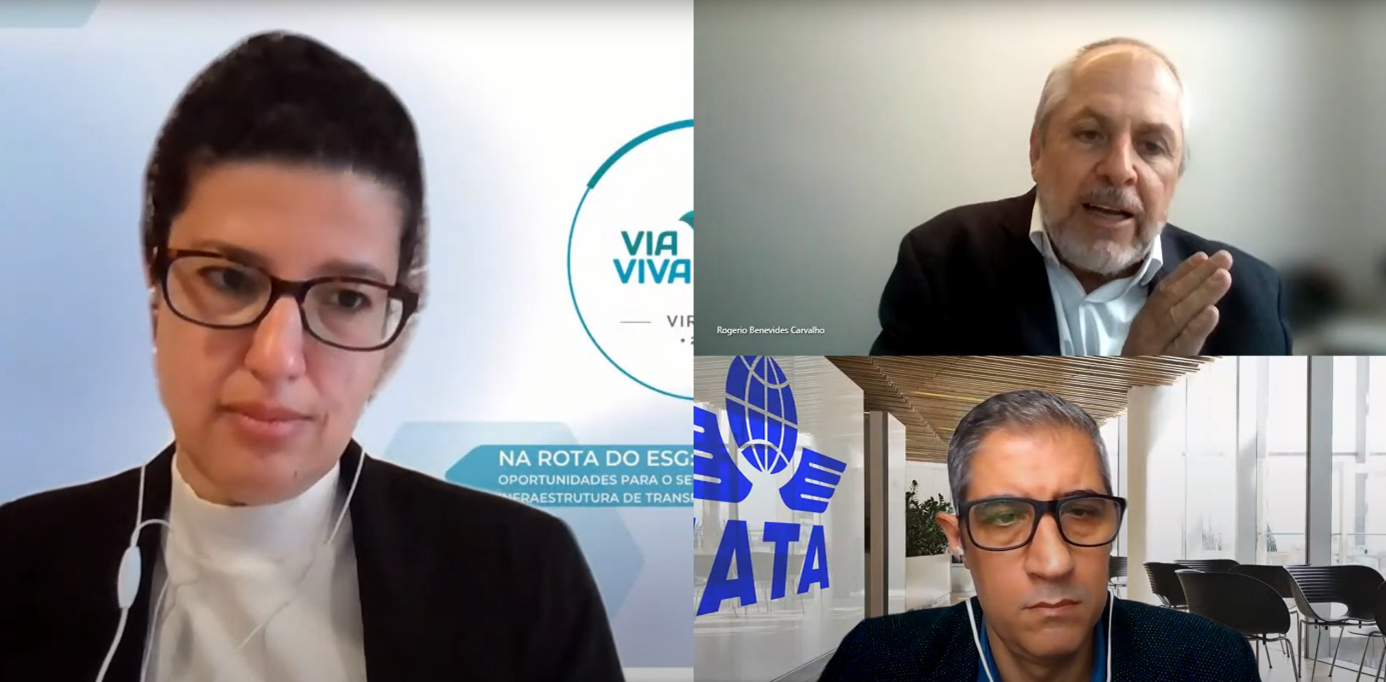Bringing emphasis to the Net Zero goal by 2050, representatives of the Brazilian government, industry and academia were brought together to discuss and present the main strategies for mitigation and reduction of carbon emissions in the aviation sector. The Side Event “ESG route and the air modal – challenges and opportunities for low carbon aviation” promoted by the Ministry of Infrastructure (MInfra), in partnership with the project ProQR – Climate Neutral Alternative Fuels, was part of the 6th Socio-environmental Seminar on Transport Infrastructure (ViaViva 2022).
With keynote sessions, panels and roundtable discussions, event participants and guests had the opportunity to reflect on the main challenges and opportunities for the use of sustainable aviation fuels (SAF), reinforcing the Brazilian commitment to strengthen solutions to the climate change. New routes to produce fuels, as well as regulation and infrastructure issues in the aviation sector were also addressed in the context of ESG (Environmental, Social and Governance) approach.
The event took place shortly after the signing of the long-term global aspirational goal (LTAG) at the 41st ICAO Assembly. The document marks the commitment of the member countries of the Organization, including Brazil, with the goal of zero carbon emissions in aviation by 2050. This is a historic milestone in the journey towards clean aviation. The presentations, keynotes and inputs raised on the event reinforce the importance of the LTAG for the consolidation of a global sustainable fuels market, as well as the important role played by countries such as Brazil.
“The 41 ICAO Assembly was a turning point on the SAF issue: SAF now moves from being desired to being indispensable.”
– Rogério Benevides, Director of the National Civil Aviation Agency (ANAC)
Following the opening remarks, the first session addressed the Brazilian government’s strategies for decarbonisation of aviation, both at national and international level. Representatives from different agencies such as the Ministry of Science, Technology, and Innovations (MCTI), the Ministry of Mines and Energy (MME), the Civil Aviation Secretariat (SAC) and the National Civil Aviation Agency (ANAC), as well as a representative of the International Air Transport Association (IATA), were present.
The remarks by the speakers offered a greater understanding of Brazil’s actions (accomplished, in progress, or planned) and what we can expect from the future of this sector in the country.
The afternoon sessions were marked by a round table with questions and answers on different aspects of the production and commercialization of SAF in Brazil. The multi-sector dialogue presented prospects from academia, industry, airport management and international cooperation on the opportunities and challenges for sustainable aviation fuels (SAF) in the country.
The event ended with a panel on Governance and Public Policies, presented by Professor Laís Thomaz, Secretary of Foreign Relations of the Federal University of Goiás (UFG). The panel brought the results of the study “Governance and public policies to encourage the production of Sustainable Aviation Fuels (SAF)” written by the professor in partnership with ProQR. As part of the discussions of the National Fuel of the Future Programme, the study served as input for the creation of public policies for SAF.
ProQR has been contributing since 2016 to making SAF production feasible in Brazil. The project accompanied the advances in the theme, the consolidation of scientific and technological knowledge, discussions within governments and private initiative, as well as the growth of the population’s engagement on climate change issues. The signature of the LTAG and the paths pointed out during ViaViva 2022 offer new possibilities for the action of international cooperation for the future of clean aviation in Brazil and worldwide.
Watch the complete Side Event in Portuguese here.
Vitória Souza contributed to this article.
